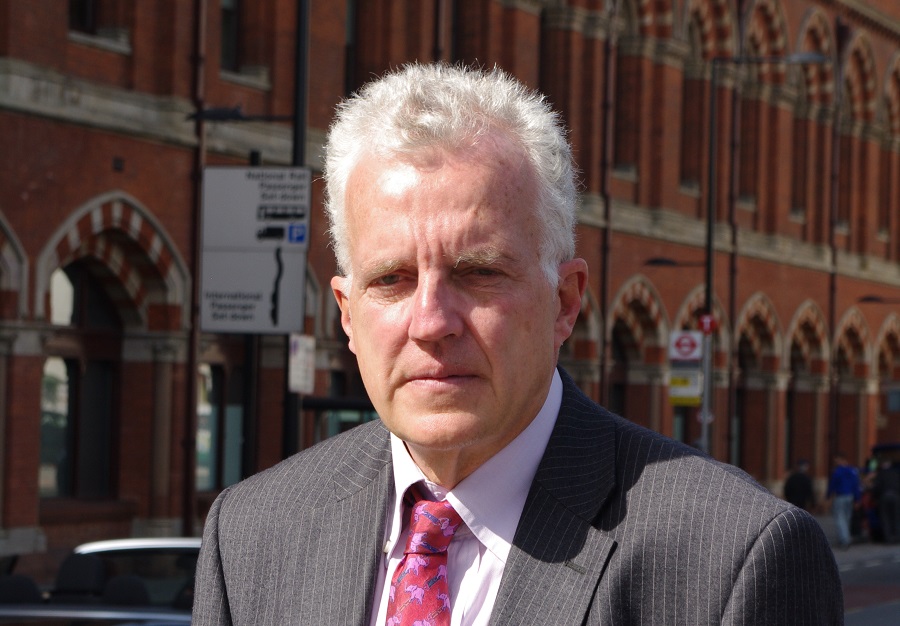Slowly, indeed about as fast as the traffic flows in our towns and cities, the government’s appalling record on transport is becoming a source of embarrassment to Labour. The criticism over the weekend from the government-created but independent Commission for Integrated Transport is a damning indictment of six years of failure.
According to the Commission, whatever mode of transport you consider, the situation seems to be chaotic. The roads are full and congestion seems to get worse by the week; the railways are overcrowded yet bankrupt; and there is little hope of improvement in prospect.
It was supposed to be so different. The Ten Year Plan, launched with a fanfare by John Prescott three years ago was supposed to be the route map to Transport Heaven. There was to be £60bn invested in the roads which would solve congestion while a similar amount on the railways would revamp the whole service and provide lots of extra capacity to meet the expected 50 per cent additional passengers.
In fact, it has all gone badly wrong. The plan was not so much a coherent strategy, but a list of projects most of which have been put on the backburner or will not happen at all through lack of cash. The private sector was supposed to invest billions in the rail industry but that is not now forthcoming following the enforced collapse of Railtrack. The railways are already absorbing records amount of subsidy but that is just to maintain the existing network and the government has effectively abandoned its strategy to boost passenger numbers through major improvement schemes. Much needed schemes like Crossrail and Thameslink 2000 are still on the drawing board instead of being implemented.
So that leaves the roads. On Wednesday, Alistair Darling is expected to announce a substantial programme of roadbuilding that will be the biggest such announcement since the 1989 Tory White Paper, Roads to Prosperity, promised the ‘biggest roadbuilding programme since the Romans’. Darling’s schemes will concentrate on widening of key parts of motorways, especially the M25 and by-passes for highly congested towns. However, despite spending billions, he will be forced to accept that while this may reduce the increase in congestion, it will not actually do anything to slow up the overall growth in traffic.
As the Commission for Integrated Transport pointed out over the weekend, a transport strategy based on simply trying to accommodate traffic through new roadbuilding is bound to fail. The Tory programme of the 1990s quickly got bogged down because of political protest, both from environmentalists and many of their own blue rinse supporters who were worried about Britain becoming one huge concrete jungle. It was finally ditched when the Treasury realised that trying to build the country out of its mega traffic jam was a bottomless pit.
Every mode of transport is under pressure from demand but the government has refused to bite the bullet. It needs to do two things – to reduce demand and provide extra capacity. In London Ken Livingstone has shown the way with his congestion charge scheme that has resulted in a near 20 per cent reduction in traffic. Charge for congestion and many marginal users will melt away leaving the roadspace for those who really need it.
Darling is a bit cannier than his predecessors, and realises that road congestion charging is the only tool which ultimately will restrain traffic growth in the parts of the network which are most congested. The Commission reckons that motorists will have to pay 50p per mile in the most heavily used parts of the road network in order to restrain traffic growth and Darling, originally an opponent of road charging, has now agreed to consider a scheme.
However, to implement the plan will require every car to be fitted with a transponder that relays its position to the Global Positioning System and therefore it cannot be introduced before 2015 at the earliest.
As for investment, there is no coherent strategy. The Department for Transport is supposed to be ‘multi-modal’ studies looking at various bottlenecks, but there is no money to implement them and no joined up government to ensure road and rail schemes are coordinated. Indeed, the Commission for Integrated Transport itself, created by Prescott is now endangered as it is the subject of a ‘review’ because its criticisms have angered ministers. Meanwhile, in his new job, Prescott has announced four major new development areas in the south east which will require billions of pounds of investment in transport which the government cannot afford and which will divert transport spending from other areas.
Of course, it’s not all the current government’s fault. We are paying the price of decades of underinvestment in transport, together with lax planning which allowed massive out of town developments, and a failure to bite the bullet on demand. In Europe, transport policy has resulted in more pedestrianisation of town centres, much greater investment in public transport and strategies to divert traffic out of residential areas, all of which make life more bearable. In Britain we are stuck in the transport dark ages.
It is, though, too easy just to blame the past. This government has messed up on transport big time. Right from the start, Tony Blair was convinced that transport was not an important issue and concentrated on health and education. Now his government may well pay the price. Our failing transport infrastructure is not a good advertisement for the image of Modern Britain which he is so anxious to portray. Moreover, the fact that Darling cannot point to any ‘quick wins’ that will make a difference over the next couple of years could play badly with the electorate, sick of being stuck in traffic jams or dirty delayed trains.
